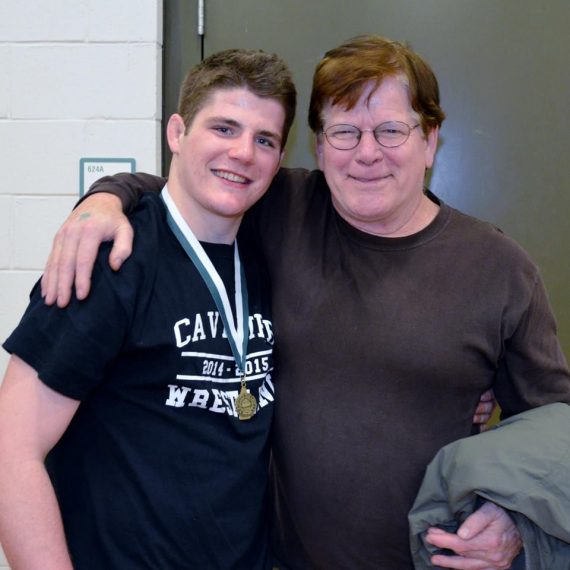
Andrew Butler with his father, Douglas. Family photo from InDepthNH.org website.
(6-4-18) Without being charged or having committed a crime, can you be incarcerated in a maximum security U.S. prison, kept in a cell 23 hours per day, held in solitary confinement, shot with a taser by correctional officers, and locked up indefinitely if you are an American citizen?
The answer is “yes,” if you have a mental illness and live in New Hampshire.
Frankie Berger, the Treatment Advocacy Center’s director of advocacy, tipped me off last week about the case of Andrew Butler.
“The state does not have a secure wing on their state hospital,” she summarized in an email, “so people who are civilly committed as a danger to themselves or others – people who have not committed or been charged with any crimes, male and female – are being sent to the men’s maximum security prison. They are given prison numbers and uniforms, treated like prisoners, and the whole thing is unconstitutional.”
How is this possible today?
Because the New Hampshire legislature doesn’t want to pay the cost of creating a secure unit in its state mental hospital, so it passed legislation in the 1980s making it legal to send anyone with a mental illness who becomes psychotic and violent to the state’s maximum security prison – even though there is no accredited mental hospital unit there to treat them.





